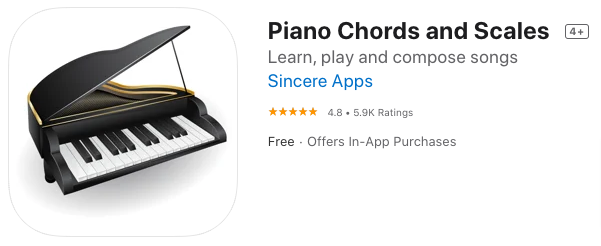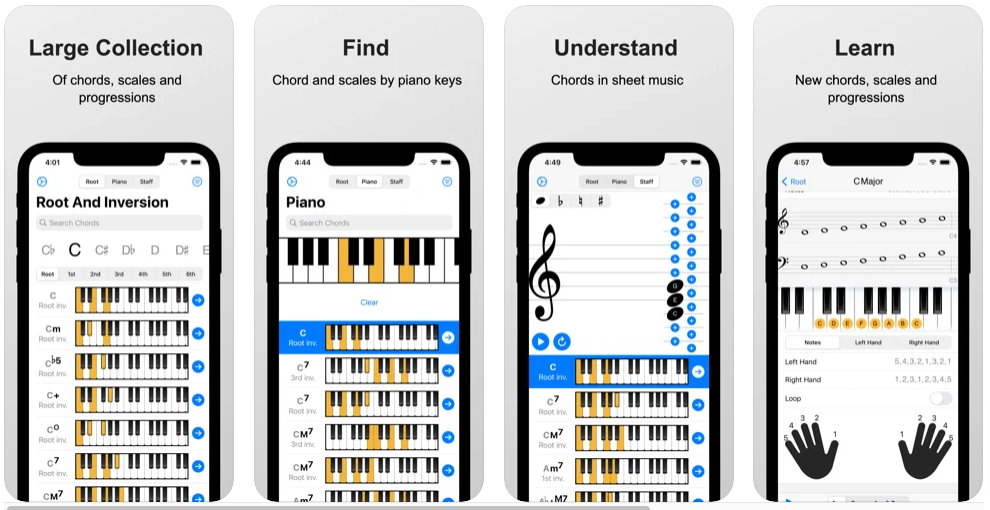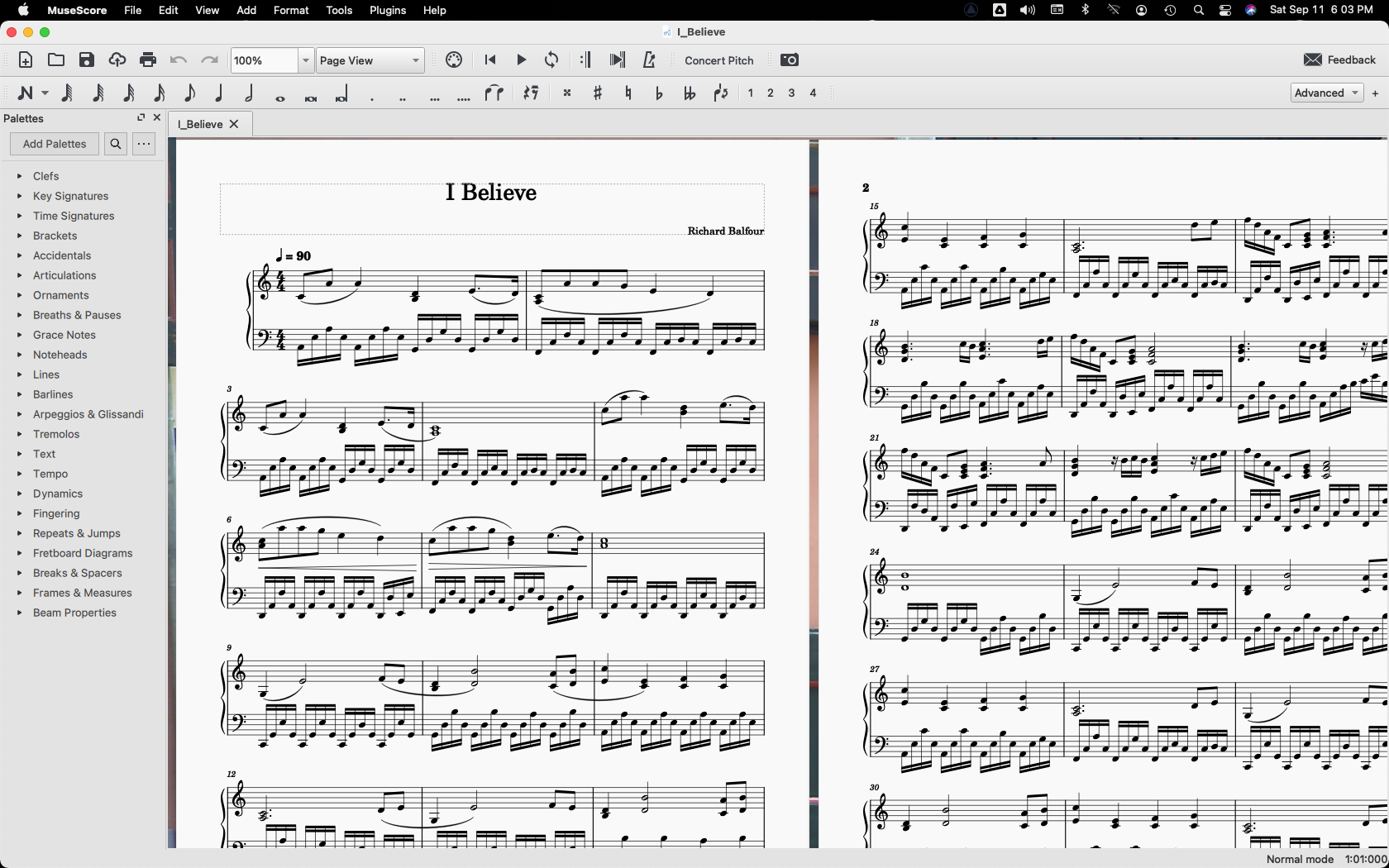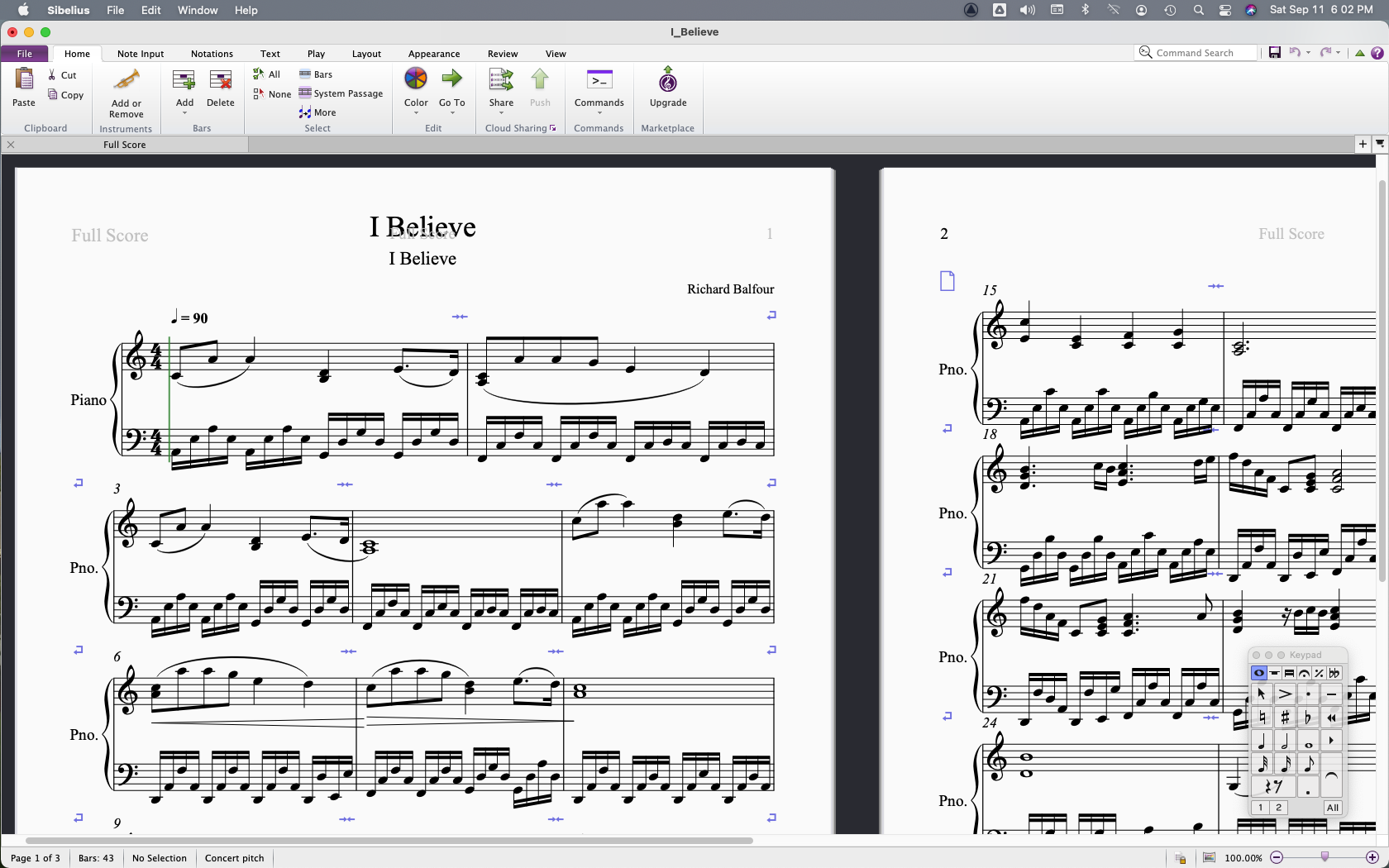Displaying items by tag: practice
3 Easy Apps You Can Use For Writing Your Music
Now that you've taken the time to clear your mind from the daily drama n grind, you can finally get to committing that song you've had in your head onto paper.
Maybe you have a few ideas jotted down here and there, but you need to have all that in one place. Today I will discuss 3 apps you can use that are free and quite good at helping you with your songwriting process.
1. Piano Chords And Scales

To make any song sound right, you need to know your basic chords and scales. Piano Chords And Scales is available from the App Store and Google Play.

This nifty app shows you the position of all the chords and scales on the keyboard. This is a delight for those of you who have trouble reading the notes on paper but know what the chord names sound like. There's even a feature that lets you build chord progressions and write songs that you can save and playback later.
Now that you've figured out the chords and progressions for your song, you need to commit it to staff paper!
2. Musescore

Musescore is free software that is ideal for first-time score writers. It allows you to connect your MIDI keyboard, or use keyboard and mouse strokes to enter notes on the screen. It might take you a few minutes to get the hang of composing with this software. If you're feeling lost, there are excellent videos on YouTube by musicians that should help you along the way.

Musescore also has a community website where you will find a wide variety of songs that you can download and play for free. There is even a feature that converts your musical piece into a video on YouTube.
3. Avid-Sibelius First
Sibelius is one of the most well-known commercial music notation programs available. Their First version, a free download gives you an interface similar to Musescore, with a slightly less complicated learning curve.

I was able to export my MIDI file from Musescore and import it without issue into the Avid software. There are a few more professional tools in this and in other versions they offer but for a free notation tool this one you can't miss!
Conclusion
Each of these tools should be in your repertoire. With some time and practice, you'll find yourself at ease creating new music and hopefully inspire others to do the same.
Using MIDI Files With Your DAW To Practice With The Classics
Did you ever take piano lessons and wondered how long it would be before you could play with a band or an orchestra?
Well, thanks to MIDI files (and the people who take the time to program and upload them) and a good DAW, you too can play along with an orchestra! Typically, conservatory students only get to this level once they've taken university studies in music. That's a good 15-20 years after a child starts out in elementary school. Why wait years and years when you can start practicing now!
Depending on the style of music you want to learn or play, you'll certainly find a MIDI file that fits your style.
My personal choice these days is Beethoven's 5th Piano Concerto. I've heard it so many times and wished for the day I could play with a real orchestra. I probably would have kept up at practicing had I known options like we have today are available. Better late than never as the saying goes!
I was able to find the MIDI file with a simple Google search. From there, the rest was for me to practice, practice, practice....and yes, practice some more!
The nice thing about using a DAW is that I can slow down the tempo, which allows me to work up my speed and muscle memory over time. When I started this piece I had the tempo set to 70BPM, which is painfully slow. I can now play comfortably at 95BPM, but need to bring the speed up to at least 110BPM.
Here's a 3-minute demo of the piece. I hope you enjoy it, and that it inspires you to do the same!
“It is, without doubt, one of the most original, imaginative, and effective, but also one of the most difficult of all existing concertos.”
Sources:
Simple Tips For Effective Piano Practice
As the old saying goes, practice makes perfect!
Although this is true, we sometimes forget that it's not the quantity or how often we do something, but the quality of the effort we put in each time that makes any practice perfect.
With this in mind, here are a few do's and don'ts to help keep your practice routine fun and rewarding.
Do's
- Just like doing any physical exercise, you need at least a good 20 minutes of practice time to see any lasting results. 30 minutes is ideal. 45 minutes to an hour if you feel you want to push a little more.
- Take a moment to prepare your practice space. Your piano is like your desk at school or study room at home. Try organizing your books and materials to avoid clutter around the piano.
- Make sure you sit with the correct posture at the piano, with your back straight and arms at a 90-degree angle with the keyboard.
- Take a few moments to relax by taking a few deep breaths and releasing the air slowly. Good practice starts with a calm mind. This also helps you to retain what you will learn more effectively.
- When going over a difficult part, take your time and slow down as much as you need. It's not necessary to get everything right on the first try. Going slowly and using a metronome to gradually increase your playing speed will go a long way.
- Put up with distractions. Sometimes you can't avoid having people or distractions while you practice. With patience and a little effort, you can learn to "block out" the noise around you and focus on your lessons.
Dont's
- Don't rush through your practice. Take your time so that you can reward yourself with beautiful music and a job well done!
- Avoid distractions. If there are people around, let them know ahead of time that you intend to do a practice shortly and would like to have as few distractions as possible.
- Don't give up. The only mistake you can make is to not try again.
- Don't over practice. As with all things balance is key.
- Don't be afraid to ask questions. Your teacher is there to help you understand what you need to know.
- Don't stop playing! Once you've gotten the hang of playing piano, make it a permanent part of your life.
To summarize, music practice should never be about just another activity or hobby to pass the time. Our body is like a very complex machine. Music helps to keep all the parts works together and in harmony, because this is how life should be experienced, one measure, one day at a time.






